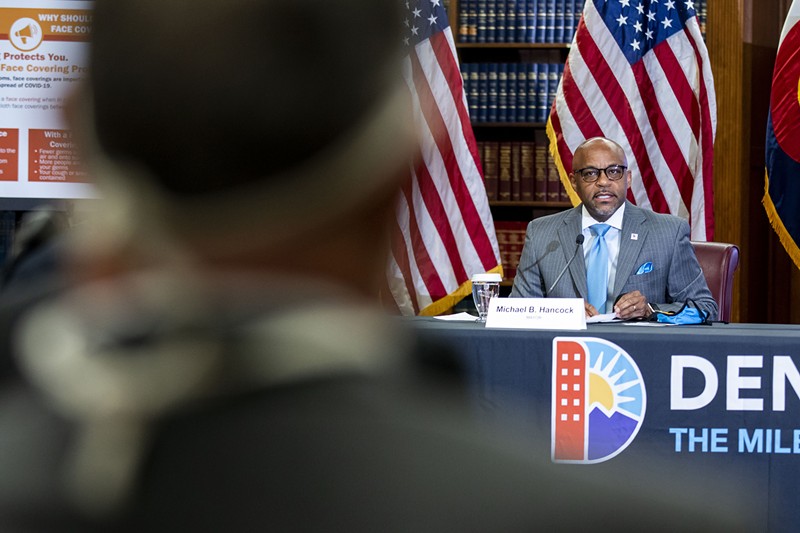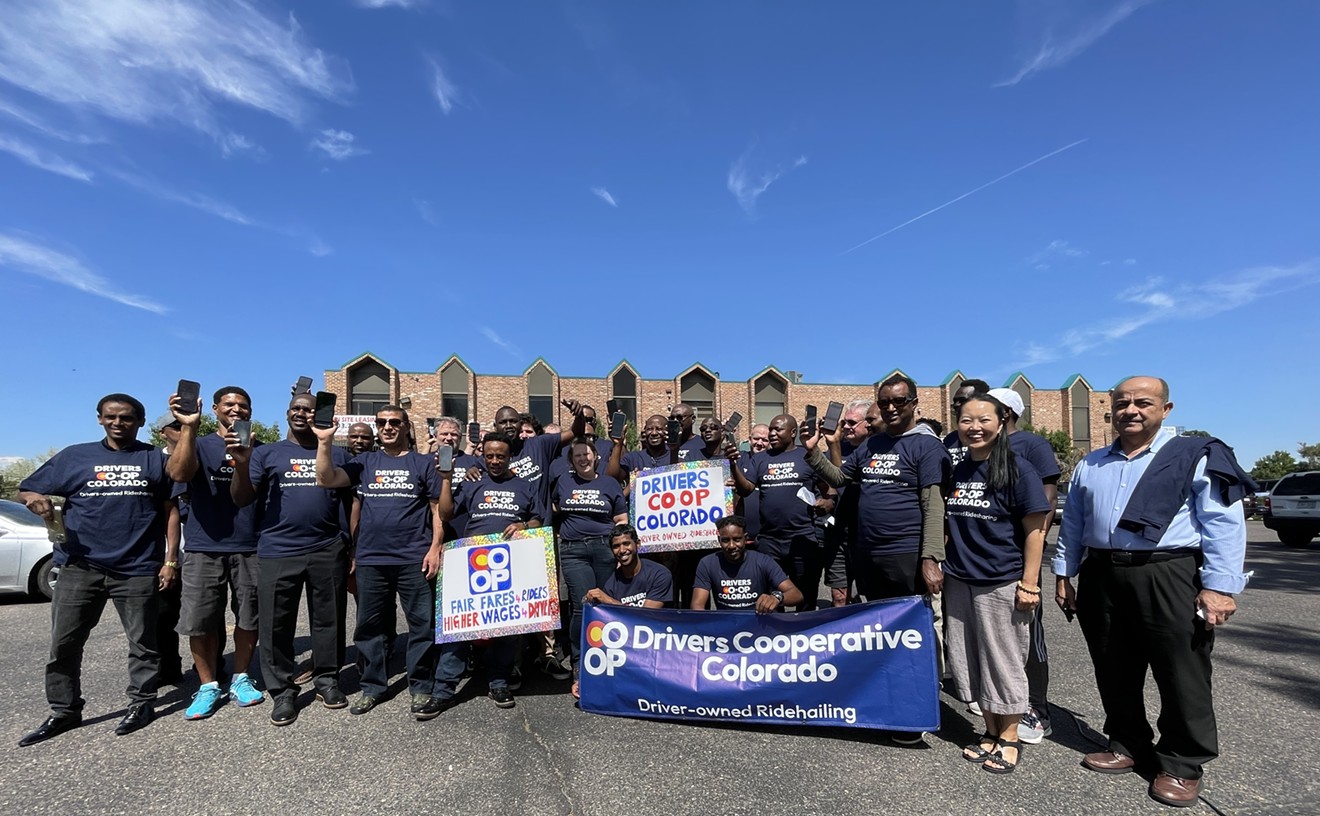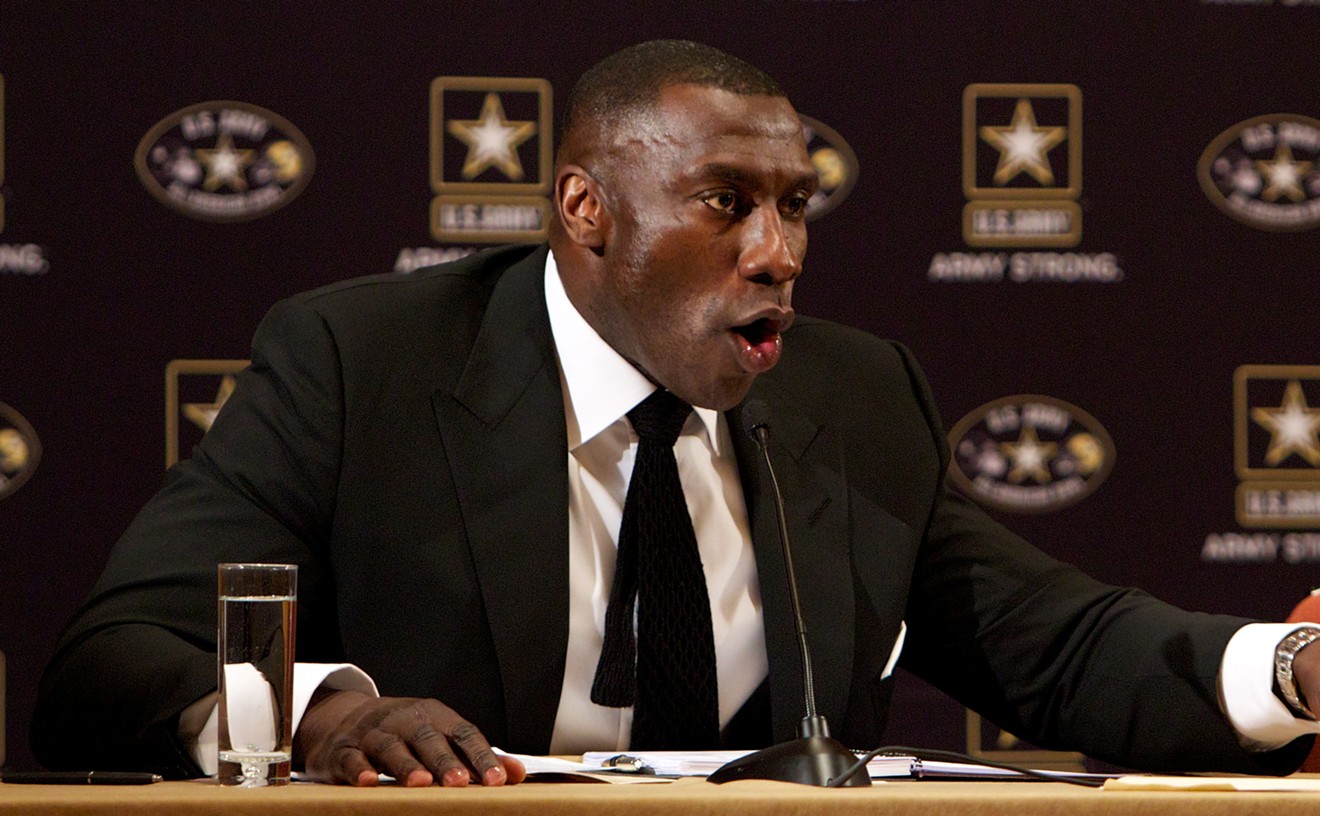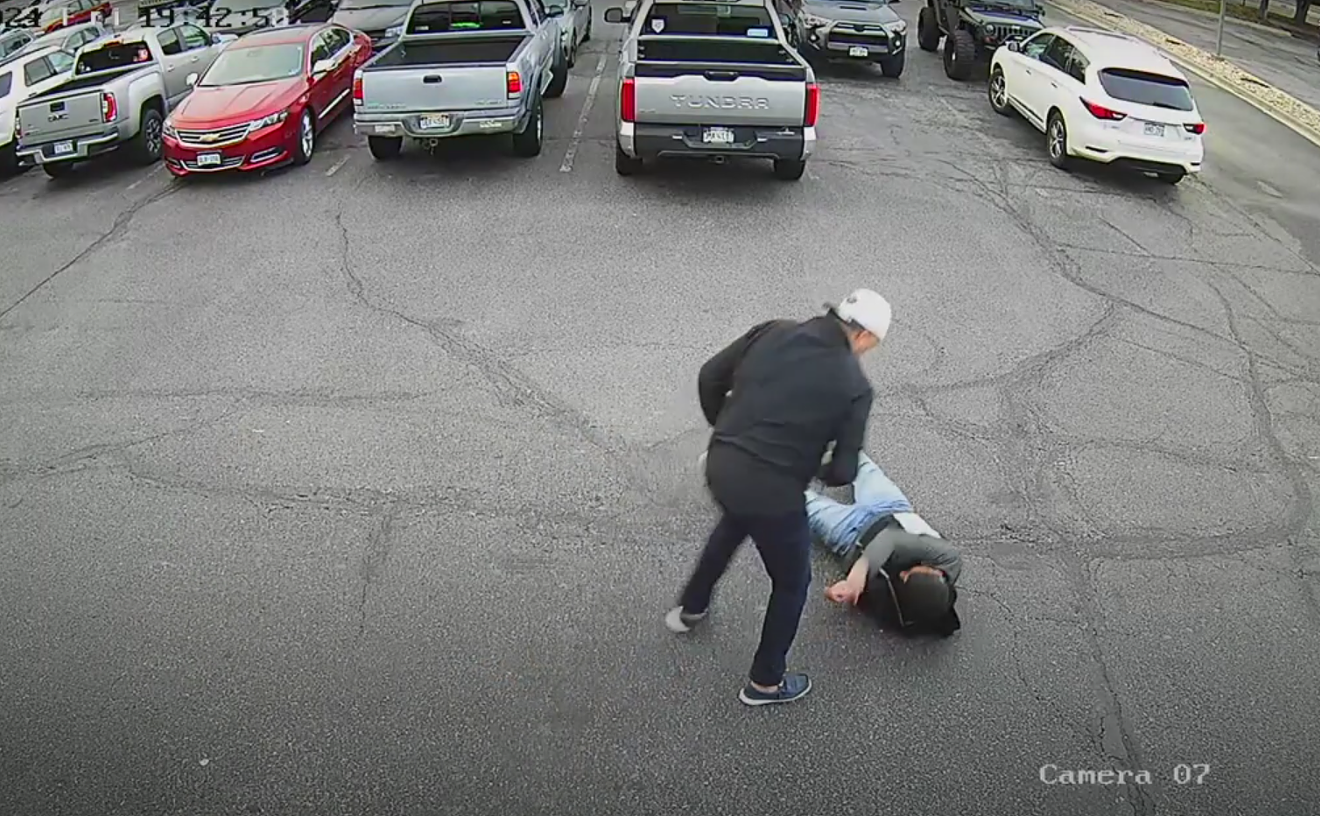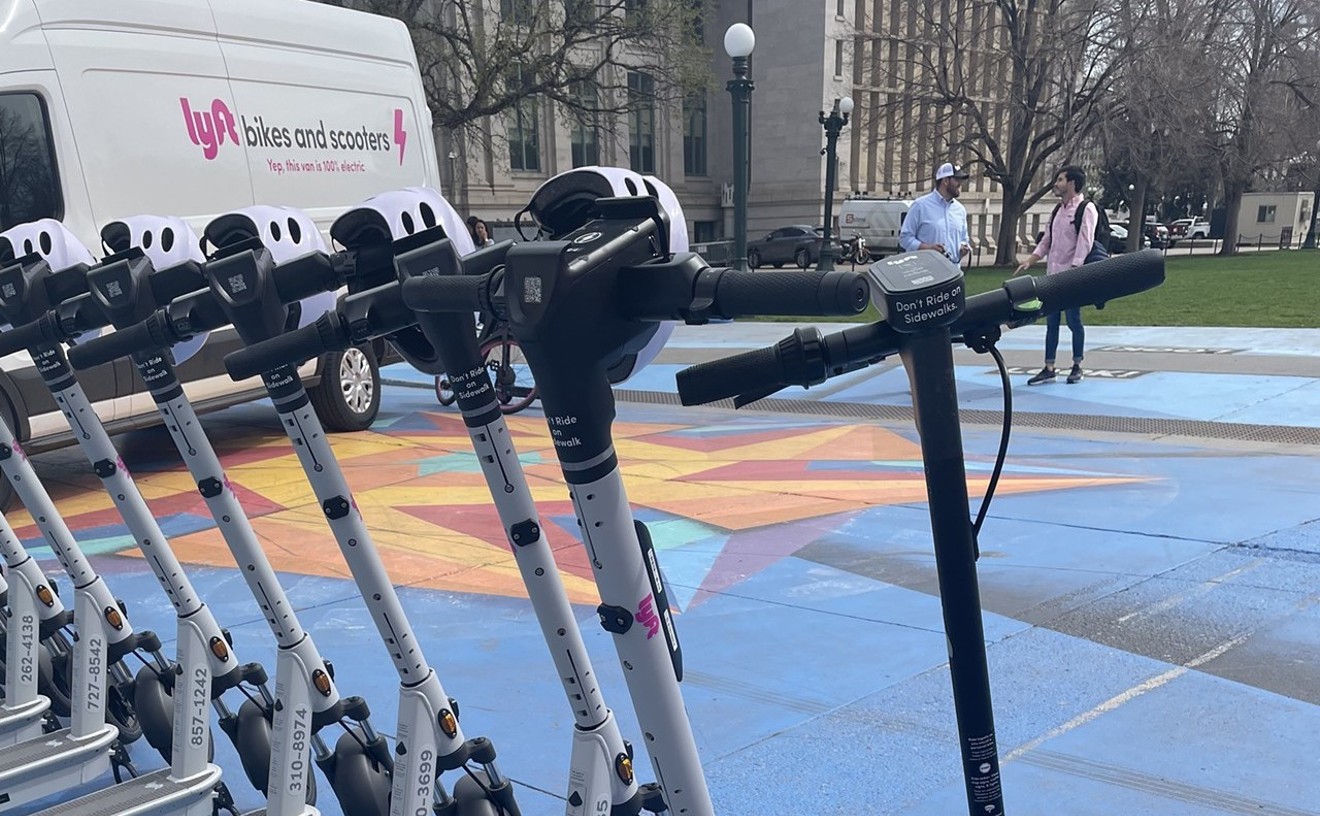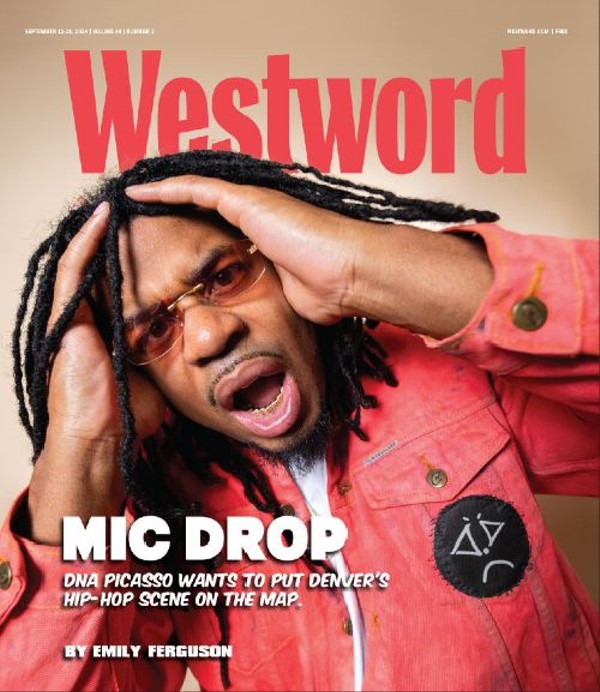In a May 5 press conference about COVID-19, Denver Mayor Michael Hancock and several other officials outlined the rules being put in place to begin reopening the city after the expiration of the current stay-at-home order circa Friday, May 8.
Hancock revealed that Denver will immediately move into alignment with Colorado's Safer at Home program rather than transitioning over the course of a week, as the state did when instituting it. Moreover, he emphasized that the city's regulations concerning mandatory mask-wearing in many locations will be enforced with warnings or citations if there's no voluntary compliance — which he hopes there will be in the vast majority of cases.
On the latter topic, Denver City Attorney Kristin Bronson said authorities will be looking for "good-faith efforts" on the part of businesses and individuals when it comes to mask use. Next steps won't be taken unless it's clear the parties in question are falling short of this standard.
The conversation began with a moment of silence for the 206 people who've died in Denver to date from the novel coronavirus. Hancock added that Denver currently has confirmed nearly 3,500 cases of COVID-19 out of 17,000 statewide. "This virus is very much a part of our lives and will be with us for the foreseeable future," he acknowledged.
After teasing a webinar this afternoon to offer more details about Denver's reopening process, Hancock noted that in coordination with neighboring communities, the city's leadership determined that extra time was needed beyond Colorado's stay-at-home order to increase testing and train more contact tracers — the folks charged with determining who may have been infected by those who have the virus and if they should be quarantined to prevent further spread. Denver's goal is to have at least 100 people assigned to contact-tracing duties, and at present, 45 are in the process of being trained, with more expected to join their numbers soon.
Additionally, Denver now has the ability to conduct 1,000 swab tests per day on top of the 3,000 daily tests that can be conducted at local hospitals and clinics, Hancock pointed out. Further ramping up is in the offing, since the sort of supply shortages that caused so many problems several weeks ago are less severe today.
Despite these improvements, however, a public-health order that goes into effect tomorrow, May 6, will make face coverings the law for everyone other than those with medical conditions that make donning them dangerous. They'll need to be worn in what Hancock called "certain public settings": retail businesses (for customers and employees inside or waiting in line to enter), common areas and enclosed spaces such as elevators, government buildings and bus stops, and inside buses, ride shares or cars for hire, plus facilities that offer health-care services.
He stressed that masks aren't required for residents or visitors taking a walk, exercising outside or visiting parks, though he strongly encouraged folks in those settings to wear them anyhow. In his view, mask wearers are showing that they care about the health of others around them, and he encouraged people to thank those who have their faces covered in any setting, whether they're mandated or not.
On May 9, the day after the stay-at-home order expires, offices will be able to reopen with 50 percent or fewer employees on site and six feet of social distancing between them. So, too, will retail businesses that follow these same guidelines. Those who offer personal services, including nail and hair salons, tattoo parlors, pet groomers and trainers, can do likewise if their locations have ten or fewer people on hand or a maximum of 50 percent occupancy — whichever is less. Furthermore, they must operate by appointment only: "No walk-ins," Hancock emphasized. The same goes for operations such as eye doctors and chiropractors. But in-person services such as real estate showings and tours of college campuses will be allowed as long as social distancing and other best practices are followed.
At the same time, though, Hancock conceded that many businesses will remain closed through May 26, the length of the current order, including restaurants and bars except for curbside pick-up and delivery, movie theaters, live venues, stadiums and arenas, plus gyms, yoga and fitness studios "with very limited exceptions." Stores in malls that lack outdoor entrances and exits will stay shuttered for a while longer as well, as will basketball courts, city recreation centers, libraries and more. Also, gatherings of more than ten people will be prohibited until at least the 26th.
Another warning: Hancock said the city is looking at a gap from lost revenue of more than $180 million, and it "can't be filled without some sacrifice" — possibly a hint at future furloughs or layoffs. An advisory council has been formed to come up with ideas about how to lessen these blows, but as one way to stave off the worst cuts, he encouraged members of Colorado's congressional delegation to make certain that aid for cities is included in any future economic-recovery package at the federal level.
At that point, Hancock introduced Bob McDonald, executive director of Denver Public Health and Environment and the city's public-health administrator, who defended the decision to lift the most severe restrictions this weekend. There have been suggestions that before allowing the stay-at-home order to expire, "there should be a decreasing case rate or a stable case rate as a minimum," he admitted. But while case numbers are still rising, he argued that increased testing is among the reasons why. "Another metric is hospital rates, and that's something we've been focusing on," he continued. "Are cases manageable?" His answer to that question: "Case admissions are as low in the past couple of weeks as they were at the beginning of this. That's testimony Denver got out early on this."
As for testing, McDonald celebrated the launch today of mobile units assigned to vulnerable communities, where individuals can be swabbed without leaving their home — a service for which there will be no cost. (Up to seven of the mobile units are in the planning stages.) And while a doctor's order is still needed to get tests done, he said the city is exploring a standing order that would allow testing without such an okay. Right now, officials are trying to figure out whether such an order would have to be put forward at the city or state level, but McDonald is hopeful obstacles can be overcome, thereby making testing available to many more people.
Building on McDonald's comments was Dr. Connie Price, chief medical officer of Denver Health, who said the stay-at-home order not only allowed an increase in testing capacity, but also gave health-care pros a chance to develop and try out new therapies for treatment. Still, she is concerned that vulnerable populations stick with the shelter-in-place rule for now — among them folks over 65, individuals with chronic medical conditions like heart and lung problems, folks whose immune systems have been weakened by bouts with cancer or HIV, and people with severe obesity, defined as a body mass index over forty.
Price was followed by Matt Mueller of Denver's Emergency Management office, who discussed personal-protective equipment. Stockpiles are growing, but Mueller mentioned that because shipments are still taking two to three weeks to arrive, Denver needs to keep obtaining it to "build inventory, so we can be prepared for later this year, when most models show we will have a resurgence of cases."
During a question-and-answer period, Hancock was asked by multiple reporters about mask enforcement, and after touting voluntary compliance again, he turned the spotlight on City Attorney Bronson. In her words, "We are asking businesses to ensure folks that come into the store as customers are complying with the order. ... But we don't want them getting into confrontations in their place of business. We expect businesses to make a good-faith effort and customers to make a good-faith effort to comply. If we go to a store and see no signage about the order and 100 percent of people in the store are not wearing a mask, I would suggest that's not a good-faith effort," and warnings or even citations might happen. (A $999 fine is the top penalty for an infraction cited in the public-health order.) "But if you go to a store and the vast majority are wearing face coverings, customers are asked to wear face coverings, employees have been trained and there's signage, that would be a good-faith effort."
McDonald subsequently weighed in on what data might require Denver to move backward and put stricter rules in place. He said several data points were important, with the canary in the coal mine being "cases spiking five days in a row."
Nonetheless, changes aren't expected prior to May 26, since most COVID-19 cases have an incubation period of around two weeks, and extra time after that would be needed for analysis. To McDonald, that means "a thirty-day period to make a decision about easing up on the next step."

Audio By Carbonatix
[
{
"name": "Air - MediumRectangle - Inline Content - Mobile Display Size",
"component": "12017618",
"insertPoint": "2",
"requiredCountToDisplay": "2",
"watchElement": ".fdn-content-body",
"astAdList": [
{
"adType": "rectangle",
"displayTargets": "mobile"
}
]
},{
"name": "Editor Picks",
"component": "17242653",
"insertPoint": "4",
"requiredCountToDisplay": "1",
"watchElement": ".fdn-content-body",
"astAdList": [
{
"adType": "rectangle",
"displayTargets": "desktop|tablet"
},{
"adType": "rectangle",
"displayTargets": "desktop|tablet|mobile"
}
]
},{
"name": "Inline Links",
"component": "18838239",
"insertPoint": "8th",
"startingPoint": 8,
"requiredCountToDisplay": "7",
"maxInsertions": 25
},{
"name": "Air - MediumRectangle - Combo - Inline Content",
"component": "17261320",
"insertPoint": "8th",
"startingPoint": 8,
"requiredCountToDisplay": "7",
"maxInsertions": 25,
"watchElement": ".fdn-content-body",
"astAdList": [
{
"adType": "rectangle",
"displayTargets": "desktop|tablet"
},{
"adType": "rectangle",
"displayTargets": "desktop|tablet|mobile"
}
]
},{
"name": "Inline Links",
"component": "18838239",
"insertPoint": "8th",
"startingPoint": 12,
"requiredCountToDisplay": "11",
"maxInsertions": 25
},{
"name": "Air - Leaderboard Tower - Combo - Inline Content",
"component": "17261321",
"insertPoint": "8th",
"startingPoint": 12,
"requiredCountToDisplay": "11",
"maxInsertions": 25,
"watchElement": ".fdn-content-body",
"astAdList": [
{
"adType": "leaderboardInlineContent",
"displayTargets": "desktop|tablet"
},{
"adType": "tower",
"displayTargets": "mobile"
}
]
}
]

